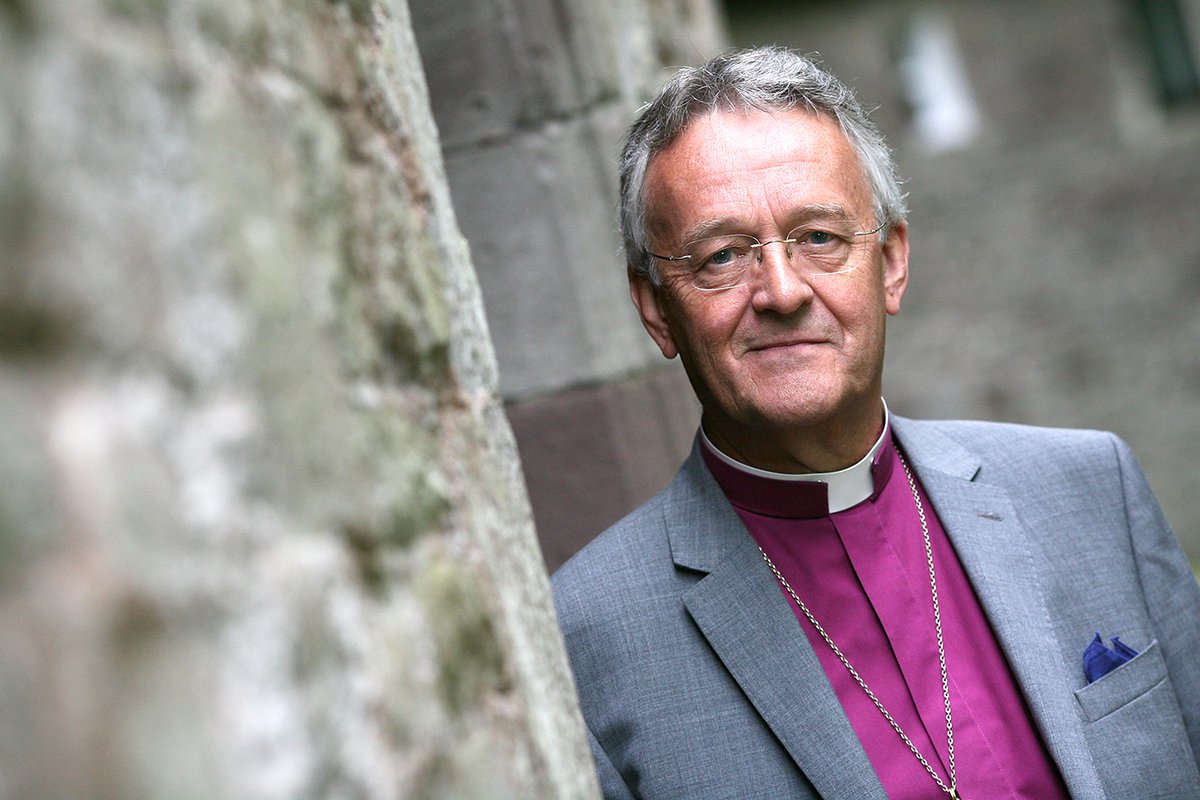Pentecost pastoral letter from Archbishop John

‘When the Day of Pentecost had come, they were all together in one place.’ So begins chapter 2 of the Acts of the Apostles. That early Christian community, faithful to what Jesus had told them, had regularly gathered in Jerusalem, waiting and praying for the fulfilment of his promised outpouring of the Spirit who would lead them into all the truth by bringing into their minds everything that Jesus had taught them.
Sadly, our various, current Christian communities cannot gather in one place, for we remain largely isolated, save for the very welcome efforts which many are making to ensure that worship, prayer and spiritual nourishment in other forms continue. For all of those efforts I am very grateful, and I trust that, by whatever means you are able to receive them and participate in them, you feel yourselves to still be part of the life and pilgrimage of faith, shared with and built upon our first brothers and sisters who gathered in Jerusalem all those centuries ago. I also trust that your participation is not evidence of mere habit or of a desire for normality, but a means of continuing to be open to the prompting of the Spirit, the breath of God, for the onward journey of mission and witness.
The outpouring of the Spirit at the first Christian Pentecost appears, from what we read in Acts, to have caused mayhem, with onlookers both suspecting and alleging that the apostles were drunk. The truth was that, far from being filled with and fuelled by drink, they were suddenly filled with and fuelled by courage, conviction and strength. They shared an irrepressible recognition that they had something of value to say to every nation and community on earth, represented by those from so many nations gathered in Jerusalem for Pentecost. What they had to say was that everything that Jesus had spoken of, everything that he had taught was and would, if attended to and if acted upon, for ever be Good News for the world and its peoples. Far from turning everything upside down, Pentecost then put things into a true perspective, the perspective of justice, service and love.
Seen through that perspective, openness to the Spirit has, for all of us, profound consequences in terms of our daily lives and our everyday relationships. It also has consequences for the ways in which nations and communities should be governed, guided and overseen.
The Apostle Paul reminded the church in Galatia that the fruit of the Spirit – the evidence that the Galatians were truly open to the Spirit – was individual lives and community life characterised by virtues and qualities such as love, joy, peace, patience, kindness, goodness, faithfulness, gentleness and self-control. These virtues and qualities were and are the building blocks of good lives and just communities and, at a time when many of these are being tested, it is good that we all pause, reflect and commit to allowing them to be the building blocks of our own lives and of the communities in which we are set. They should, it goes without saying, also be the building blocks and hallmarks of our church life.
In our present isolation, we have much to preoccupy us, and we may be anxious for the time being and for the future. I urge you, to focus upon and to seek a common openness to the Spirit of God. Thus we will be inspired to continue our faith journey, growing spiritually stronger, and enabled to say to the world and to show to the world, with conviction, things of lasting value and profound substance. Thus will the world become an ever more kind, generous and just place.
At Pentecost, as always, be assured of my continued love and prayers for you all. Please accept my personal thanks for the contributions which, despite not being able to gather together for worship, so many of you are continuing to make to support the ongoing ministry and mission of the church.
+John Cambrensis